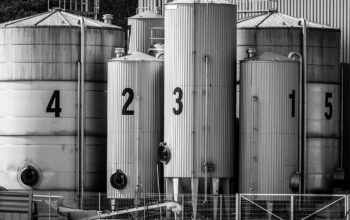Imagine waking up one day to find that your favorite coffee beans have disappeared from the shelves. Or, picture yourself stuck in traffic due to a highway collapse after a hurricane. These scenarios are more than just hypothetical; they are the reality of how weather events are disrupting supply chains worldwide. Let’s dive into some of the most significant weather-related challenges facing the supply chain industry today.
Hurricanes and the New Normal
Predictions from the National Oceanic and Atmospheric Administration (NOAA) point to a year of heightened hurricane activity in the Atlantic basin. This increased frequency of disasters is becoming the “new normal,” as evident from the prolonged recovery times seen after events like Hurricane Helene in 2024. The aftermath of such storms highlights the need for robust infrastructure and supply chain resilience. For instance, the extensive damage to critical freight transportation infrastructure in Ashville, North Carolina, signals ongoing challenges for logistics.
Droughts and Fragile Food Security
The first half of 2025 has shown signs of significant drought-driven supply chain disruptions. Drought conditions across major agricultural regions, such as Brazil, Europe, and parts of the U.S. and Mexico, are severely impacting global food production. This isn’t just a minor fluctuation; droughts have reached their highest levels in over two decades, affecting crops like coffee and sugar cane. Experts warn of an era of fragile food security, where planting seasons are increasingly stressful due to ongoing dryness.
Heatwaves and Power Grids Under Strain
Heatwaves have gripped countries worldwide, including China, the U.S., Canada, France, and the UK. These extreme temperatures are straining power grids as electricity demand surges due to increased cooling needs. Meeting this demand often results in a rise in coal and gas-based electricity generation, complicating efforts to transition to cleaner energy sources. Procurement leaders face the challenge of ensuring reliable power supplies amidst these heatwaves, emphasizing the need for efficient AC adoption and clean, flexible power systems.
Flooding Disruptions in Brazil
Flooding in Brazil, particularly in the state of Rio Grande do Sul, has demonstrated the substantial impact of climate hazards on supply chains. The flooding disrupted agricultural commodity exports, including soybeans and tobacco, by damaging roads, airports, and seaports. This disruption not only halted operations temporarily but also led to permanent damage in some cases, underscoring the importance of climate resilience in supply chain management.
Tariff Uncertainty Adds to Supply Chain Pressures
Beyond weather-related disruptions, economic factors like tariffs are also affecting supply chains. The 2025 U.S. tariff hikes have created unprecedented trade disruptions, forcing companies to juggle multiple sourcing plans due to policy unpredictability. This economic volatility compounds the challenges faced by supply chains already reeling from climate-related stressors.
Conclusion
In summary, weather events are not the only factor affecting supply chains today. Economic and policy uncertainties also play a significant role, making it essential for companies to build robust adaptation plans that consider both climate and economic risks. Whether it’s hurricanes, droughts, heatwaves, or tariffs, the key to resilience lies in proactive planning and collaboration across industries.
References:
- https://blog.gettransport.com/fr/news/impact-of-weather-on-supply-chains/
- https://industrytoday.com/running-on-empty/
- https://procurementmag.com/news/climate-change-how-heatwaves-are-affecting-power-grids
- https://www.globaltrademag.com/rising-tides-of-risk-the-hidden-effects-of-climate-hazards-on-companies-value-chains/
- https://thumbwind.com/2025/07/05/2025-tariff-shock-global-trade-msu-study/
- https://www.supplychaindive.com/news/us-manufacturing-activity-improves-june-but-sentiment-remains-low-ism-pmi/752115/
- https://quantis.com/insights/weathering-the-storm-how-to-build-resilience-in-agrifood-supply-chains/



